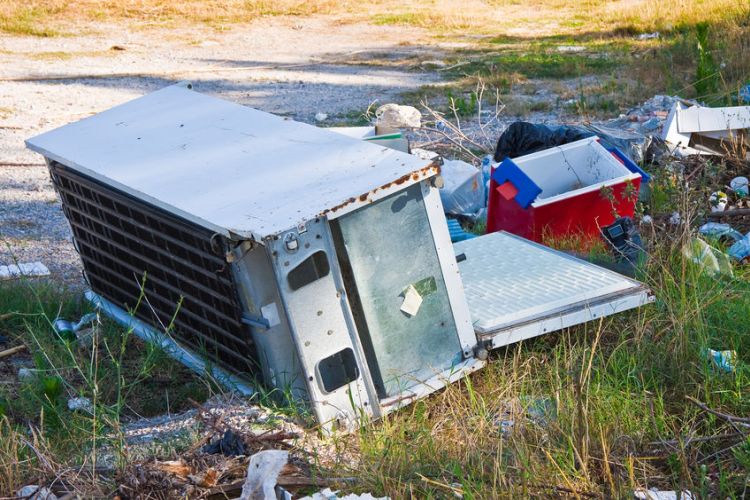
A crackdown on waste criminals has been unveiled by Defra today amid fears that rural fly-tipping incidents are on the rise.
Proposals set out in two new consultations will clamp down on waste crime and support people and businesses to manage waste correctly.
The reforms will see increased background checks for firms who move or trade waste, as well as making it easier for regulators across the UK take action against rogue operators.
With waste often handled by intermediaries who conceal their identities, the increased checks will ensure waste is managed by authorised persons only and in a safe manner, making it harder for unregistered operators to find work in the sector.
The plans will also see the introduction of mandatory digital waste tracking, using powers in the Environment Act to overhaul existing waste record keeping.
This means those handling waste will record information from the point waste is produced to the stage it is disposed of, recycled and reused.
The government says this will enable regulators to better detect illegal activity and tackle waste crime, including fly-tipping, illegal waste sites, and illegal waste exports.
Criminal activities including fly-tipping, illegal dumping, and the illegal export of waste abroad can blight rural and farming communities.
In 2018/19, waste crime cost the English economy around £924m. Local authorities dealt with nearly 1.13m fly-tipping incidents this year alone.
However, the vast majority of fly-tipping incidents on privately-owned land, which are thought to be significantly more, are not included in this figure.
Environment Minister Jo Churchill said: "Waste criminals show complete disregard for our communities, the environment and the taxpayer.
"Reforming the licensing system will clamp down on abuse of the system and new mandatory digital waste tracking will greatly improve transparency in the sector and make it easier for householders to check that their waste is being disposed of legally.
"Together, these reforms will stop criminals abusing the waste system and make it easier to prosecute offenders successfully."
Mark Bridgeman, president of the Country Land and Business Association (CLA), said that while the fly-tipping figures were alarming, it was just the tip of the iceberg.
“Cases of fly-tipping on privately owned land are significantly more than on public land so these figures do not reflect the true scale of this type of organised crime, which blights our rural communities.
"Part of the problem is that it’s currently too simple to gain a waste carrying licence that enables firms to transport and dispose of waste – and this needs urgent reform with correct checks put in place.
"A revamped system would act as a deterrent,” Mr Bridgeman said.
The government and devolved governments are also working together to develop a UK-wide digital waste tracking service for those handling waste.
It aims to help businesses comply with their duty of care with regards to waste and help them make more informed choices about how their waste is managed.
